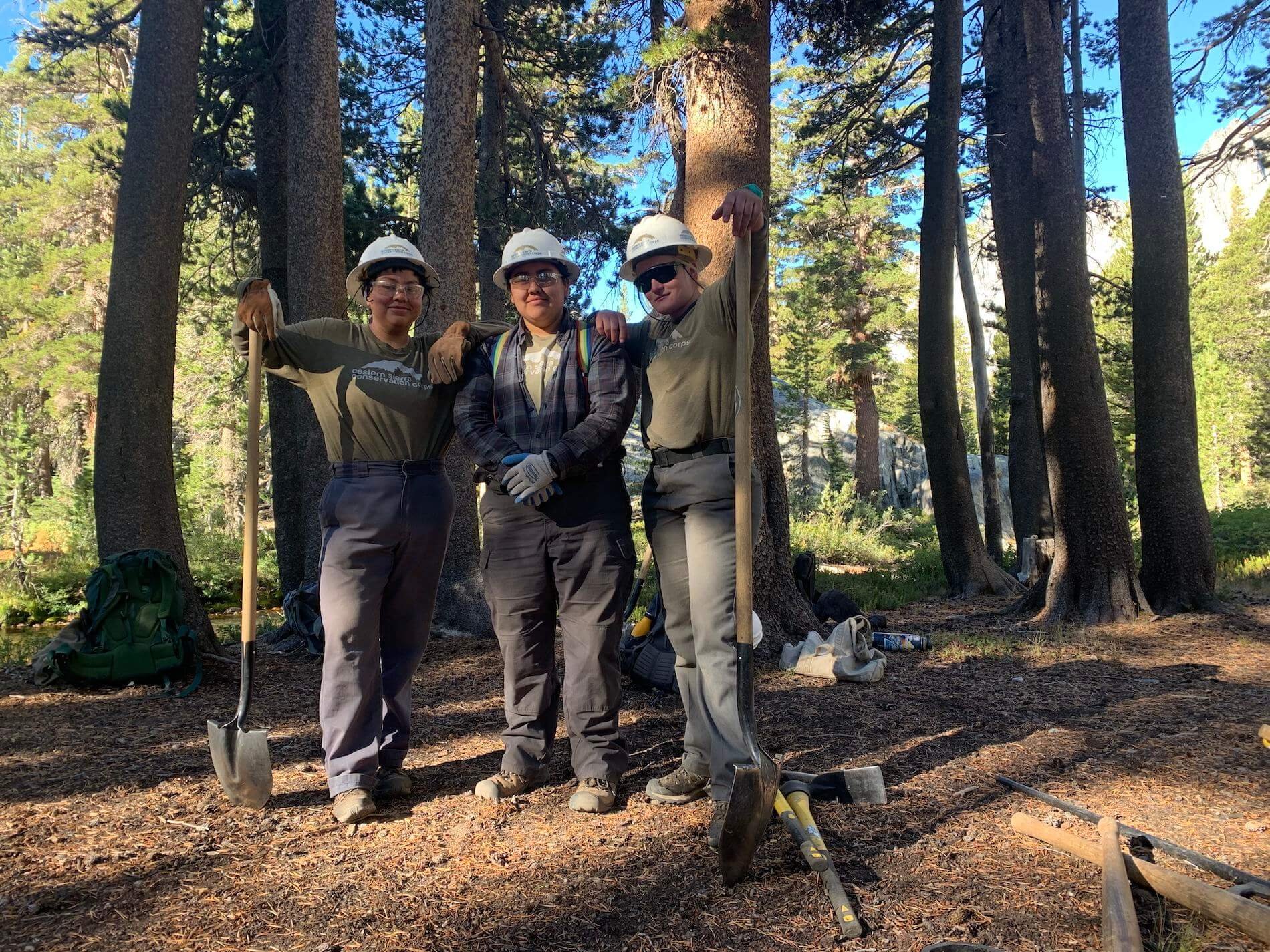
Program FAQs
What is conservation work?
“Conservation Work” is a large umbrella describing different ways to protect and preserve natural resources for future generations. It’s widely agreed upon that people’s ability to access, use, and enjoy the outdoors - also known as recreating - is a key part of protecting places for the future. ESCC focuses on building and maintaining trails and restoring areas impacted by recreation. Spending time living and working outdoors + learning the basics of trail work is an excellent foundation for starting and continuing your career in natural resources.
How long is the season? When would I start working?
Season dates vary depending on the weather and project needs. A typical season will run for 18 - 21 weeks between May-September. 2023 expected start dates: WILDlands - May 1st, Range Crews - May 15th.
Do you work around school schedules? Can I start later or end early?
Preference is for those that can commit to the full season but we are working to develop a school-friendly schedule.
What does the day-to-day look like?
Typically, we work monday-friday but this can vary depending on our project partner.
0600: wake up!
0630: wash up, prepare a lunch, and eat breakfast
0700: dish line, chores, chop firewood
0745: physical training and stretches
0815: Safety circle and work plan
0830-1630: trail work
1630-1730: bathe, laundry in a bucket, prepare for tomorrow’s work day
1730: Dinner and chores
1830-1930: Class and curriculum
What about housing?
Crews will camp for the duration of the season, sometimes in remote wilderness locations. Your ‘housing’ will consist of a personal backpacking tent without cell service, electricity, and flush toilets. You will perform physically demanding manual labor in a variety of intense conditions.
This is a fully immersive program, you will spend the entire season together with your crew even during ‘off’ time. No vacation time is provided during this program except for family emergencies.
Tell me about food. Is there access to food?
Of course! We have fresh food each week - often delivered by a mule train - and members are trained on how to store and prepare meals outdoors and without modern conveniences. Crew leads will coordinate each member to take turns helping plan and prepare meals. There is an $85/week food stipend that covers all your food needs each week - even weekends.
What do you do on the weekends?
Participants work Monday - Friday and are off Saturday and Sunday. On weekends, crew members hike out to new places and explore the surrounding natural area. We support everyone’s interest in going to new spaces and trying things they never have before!
What are the benefits of joining ESCC?
There are many different conservation corps and related opportunities within state, federal, and local agencies. ESCC was started because we saw a need to do things differently. ESCC aims to offer a unique experience that prepares participants to work anywhere they might want to go. ESCC offers the following benefits:
Health Insurance
Leadership and Communication Training
Wilderness First Aid Certification - Hands-on training that prepares participants to respond to medical emergencies in the backcountry.
1:1 Mental Health Resources - When participants spend this amount of time outdoors and away from the comforts they’re accustomed to, adjusting can be challenging. We provide ongoing mental health support throughout the season for all staff and crew members.
Affinity Spaces - We aim to offer a variety of spaces for participants to feel safe and supported to show up as their most authentic selves. Affinity Groups play a vital role in ensuring an inclusive environment where all are valued, included, and empowered to succeed.
How do travel and equipment work?
We won’t let getting here or having the right stuff be the reason you don’t come. We can provide all necessary equipment and gear to get you through the season. After you’ve applied we will send a list of required gear.
What else do you do out there?
Corps members are required to engage in crew community development and personal development. You will actively participate in the development of a safe, inclusive, and well-functioning crew community.
In addition to outdoor resource and trail work, corps members will participate in regular camp chores, position-related training, physical training, daily curriculum and education, environmental awareness education, cooperative living skills and the ability to explore surrounding wilderness areas through planned weekend backpacking trips.
Can I bring my phone?
Phones are allowed but we work in locations where there isn’t much cell service.
What about safety?
Safety is our top priority. Things can change quickly in the backcountry so we work closely with our leaders and project partners to ensure safety protocols are in place specific to each camp and review this with participants. Additionally, crews have daily safety meetings to review real time questions, comments, concerns.
Climate change… what do we do when there is smoke, fire, or bad weather?
We stay informed, prioritize safety, and stay adaptable! ESCC works with our partners and crew leaders to monitor weather conditions, communicate needs, and make informed decisions about how best to ensure safety.
We also follow recommendations by state and federal agencies monitoring on-going environmental changes such as AQI, fire conditions, and precipitation to ensure we make decisions that keep you safe and in a timely manner.
How long are crews in the backcountry, and how far out do they work?
Our crews are immersive and can be in the backcountry up to 8 weeks at a time and as far out as 20 miles from any roads!
Can I bring my dog?
We love dogs! However, because our crews work in areas where dogs are not allowed, we can’t bring pups along.
What is the age limit?
We hire ages 18-30.
